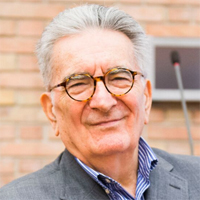Bio
Gianfranco Pasquino is Senior Associate Fellow at SAIS Europe
Professor Emeritus of Political Science, University of Bologna
Pasquino was Professor of Political Science at the University of Bologna from 1969-2012. He was a member of the Italian Senate from 1983-1992 and from 1994-1996. He served as a parliamentary observer for the plebiscite (1988) and presidential elections (1989) in Chile. He has been awarded five honorary degrees in Political Science, and is a Life Fellow of Clare Hall, Cambridge. Pasquino has also been Fellow of Christchurch and St Antony’s at Oxford. For several years he was a member of the Editorial Board of the
Enciclopedia Italiana and President of the Società Italiana di Scienza Politica (2010-2013). Since 2005 he is a Fellow of the Accademia Nazionale dei Lincei. He received the Conference Group on Italian Politics and Society (CONGRIPS) Life Achievement Award (2016). You can follow him here:
https://gianfrancopasquino.com/ or on twitter
@GP_ArieteRosso. He is a frequent contributor of articles and reviews to academic journals, policy forums and news outlets. Pasquino is often invited to participate in TV talk shows. Pasquino is very proud of his MA in International Relations from Johns Hopkins SAIS (1967).
